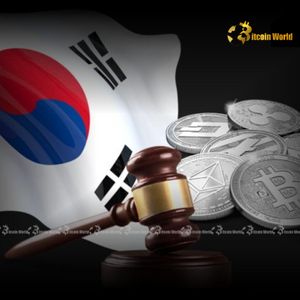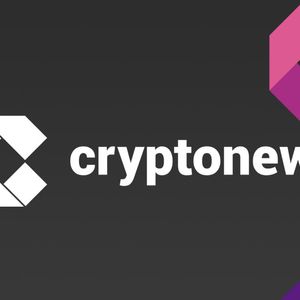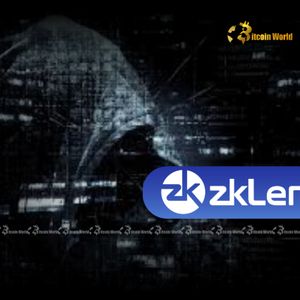BitcoinWorld South Korea Crypto Regulations: Pivotal Banking Proposals Face Uncertain Delay Are you tracking the evolving landscape of South Korea crypto regulations ? The latest news from Seoul suggests a pause in anticipated reforms, leaving many in the digital asset space wondering about the path forward. This development comes at a crucial time when nations worldwide are grappling with how to integrate cryptocurrencies into their financial systems while ensuring stability and consumer protection. For a country as technologically advanced and crypto-aware as South Korea, every policy decision carries significant weight, influencing not just its domestic market but also setting precedents for the broader Asian crypto ecosystem. What’s the Latest on South Korea Crypto Regulations ? The core of the recent announcement centers on the South Korean Presidential Transition Committee. According to a report by Yonhap Infomax, the committee has clarified that it is not currently undertaking a detailed review of a proposal put forth by the nation’s influential banking sector . This proposal aimed to ease existing regulations on digital assets and non-financial businesses, a move that many had hoped would open up new avenues for growth and innovation within the financial technology space. Spokesperson Cho Seung-rae explained that the committee is still in the preliminary stages, meticulously sorting through various proposals and aligning them with broader policy areas and pledges. This process, while seemingly bureaucratic, is critical for ensuring that any new regulations are coherent and serve the long-term strategic goals of the new administration. The implication here is not a rejection of the proposals, but rather a deferral, suggesting that while the ideas are on the table, they are not yet prioritized for immediate action or deep dive analysis. This waiting game can be a source of anxiety for businesses and investors who thrive on regulatory clarity and certainty. The Banking Sector’s Bold Proposals: What Were They? While the exact specifics of the banking sector’s proposals have not been fully disclosed to the public, the general sentiment points towards a desire for more flexibility in handling digital assets . Historically, South Korea has maintained a relatively strict stance on cryptocurrencies, particularly concerning anti-money laundering (AML) and know-your-customer (KYC) requirements. Financial institutions have faced significant hurdles in offering crypto-related services due to stringent guidelines designed to protect consumers and prevent illicit financial activities. It is widely believed that the banking sector sought to: Expand Services: Allow banks to directly offer cryptocurrency trading, custody, and other related services to their clients, rather than solely relying on partnerships with external crypto exchanges. Integrate Digital Assets: Facilitate the integration of various digital assets, including NFTs and tokenized securities, into traditional financial products and services. Reduce Regulatory Burden: Streamline the compliance process for banks engaging with the crypto market, making it more feasible and less costly to operate within this nascent industry. Foster Innovation: Position South Korean banks at the forefront of digital finance innovation, allowing them to compete globally with more crypto-friendly jurisdictions. These proposals reflect a growing recognition within traditional finance that digital assets are not merely a passing fad but a transformative force. Banks, eager to capture new revenue streams and serve an evolving customer base, are keen to participate more actively in this space. The delay in reviewing these proposals means that these aspirations will have to wait, prolonging the period of uncertainty for the traditional financial sector’s deeper engagement with crypto. Navigating the Future of Digital Assets in Korea The committee’s current focus on ‘sorting proposals and aligning them with policy areas and pledges’ indicates a methodical approach to future policy-making. This holistic view is crucial for digital assets , which span a wide range of innovative technologies beyond just cryptocurrencies. This includes non-fungible tokens (NFTs), central bank digital currencies (CBDCs), and tokenized real-world assets. Each of these categories presents unique regulatory challenges and opportunities. For non-financial businesses, especially those in the tech, gaming, and entertainment sectors that are increasingly leveraging blockchain and digital assets, this delay means continued ambiguity. Many of these businesses rely on clear regulatory frameworks to develop and deploy new products and services. Without a definitive stance, investment and innovation might proceed with caution, or even shift to more accommodating jurisdictions. The committee’s task is immense: to craft regulations that foster innovation without compromising financial stability or consumer protection. This balancing act is precisely why the review process is so complex and time-consuming. Why Are Stablecoins a Special Case for Scrutiny? Spokesperson Cho Seung-rae explicitly mentioned that stablecoins are ‘not an exception’ to the committee’s thorough review process. This highlights a global trend where stablecoins are increasingly under the regulatory microscope. Stablecoins, designed to maintain a stable value relative to a fiat currency or other assets, are seen as a critical bridge between traditional finance and the volatile cryptocurrency market. However, their growing prominence also brings significant concerns: Financial Stability: Large, widely used stablecoins could pose systemic risks if their reserves are not adequately managed or transparent. A ‘run’ on a major stablecoin could ripple through the broader financial system. Consumer Protection: Users need assurance that their stablecoins are truly backed one-to-one and that the issuers are financially sound and transparent. Anti-Money Laundering (AML) & Counter-Terrorist Financing (CTF): Like other cryptocurrencies, stablecoins can be used for illicit activities if not properly regulated. Monetary Policy: The widespread adoption of private stablecoins could potentially impact a central bank’s ability to conduct monetary policy effectively. Given these concerns, it’s understandable why the committee would give stablecoins particular attention, ensuring that any easing of crypto rules for the broader digital asset market does not inadvertently create new vulnerabilities within the financial system. South Korea, with its history of robust financial regulation, is likely to take a cautious and comprehensive approach to stablecoin oversight, mirroring discussions in other major economies like the U.S. and the EU (with its MiCA regulation). Understanding the Current State of Crypto Rules in South Korea Currently, South Korea operates under a framework that largely treats cryptocurrencies as virtual assets, subject to strict anti-money laundering (AML) obligations. Crypto exchanges are required to register with the Financial Intelligence Unit (FIU) and adhere to stringent reporting requirements, including real-name account verification for transactions. While this has brought a degree of legitimacy and reduced illicit activities, it has also created a challenging environment for innovation and market expansion. The existing crypto rules have been criticized by some for being too restrictive, potentially stifling the growth of a domestic crypto industry that could otherwise compete globally. The banking sector’s proposals were likely an attempt to find a middle ground – a way to integrate digital assets more smoothly into the mainstream financial system without compromising the nation’s strong regulatory principles. The current delay, therefore, prolongs the status quo, leaving the industry to operate under the existing, often cumbersome, regulations. Challenges and Opportunities for South Korea’s Crypto Future The committee’s ongoing review process, while slow, presents both challenges and opportunities for South Korea’s crypto future: Challenges: Regulatory Uncertainty: The prolonged period of ‘not under review’ creates an environment of uncertainty, which can deter both domestic and foreign investment in the crypto space. Innovation Flight: Without clear and progressive regulations, innovative blockchain projects and companies might choose to set up shop in more crypto-friendly jurisdictions. Balancing Act: The inherent difficulty in balancing consumer protection and financial stability with the need to foster technological innovation remains a significant hurdle. Global Harmonization: Aligning domestic South Korea crypto regulations with evolving international standards is complex but essential for global interoperability. Opportunities: Thoughtful Policy-Making: The deliberate approach allows the committee to craft comprehensive, well-considered policies that avoid pitfalls seen in other nations. Strong Foundations: By taking their time, South Korea can build a robust regulatory framework that provides long-term stability and legitimacy for the digital asset market. Leadership in Web3: A well-designed regulatory environment could eventually position South Korea as a leader in the broader Web3 economy, attracting talent and capital. Enhanced Consumer Trust: Clear and effective regulations can build greater public trust in digital assets , encouraging broader adoption and participation. What Does This Mean for Investors and Businesses? Actionable Insights. For those invested in or looking to enter the South Korean crypto market, the current situation demands patience and vigilance. The delay signifies that significant regulatory shifts are not imminent, but it also doesn’t mean they won’t happen. Here are some actionable insights: Monitor Developments Closely: Keep a keen eye on official announcements from the Presidential Transition Committee and other relevant government bodies. Policy shifts can occur quickly once the review process is complete. Understand the Current Framework: Operate strictly within the existing crypto rules . Compliance remains paramount to avoid legal issues. Engage with Local Experts: Consult with legal and financial experts specializing in South Korean crypto regulations to understand the nuances and prepare for potential changes. Diversify and Adapt: For businesses, consider diversifying strategies to account for regulatory uncertainty. For investors, understand that regulatory news can significantly impact market sentiment. The path forward for South Korea crypto regulations is clearly a methodical one. While the immediate impact of this announcement is a prolonged period of regulatory ambiguity regarding the banking sector’s proposals, it also underscores the administration’s commitment to a thorough and considered approach to digital asset policy. The inclusion of stablecoins as a specific area of focus further emphasizes the comprehensive nature of this review. In conclusion, the South Korean Presidential Transition Committee’s decision to delay the detailed review of banking sector proposals to ease crypto rules for digital assets and non-financial businesses, including stablecoins , signals a period of careful deliberation rather than immediate action. While this might lead to short-term uncertainty for the market, it also provides an opportunity for the new administration to lay down a robust and sustainable framework for the future of digital finance in one of Asia’s most significant economies. The world will be watching closely as South Korea navigates this complex but crucial policy landscape. To learn more about the latest crypto market trends, explore our article on key developments shaping digital asset institutional adoption. This post South Korea Crypto Regulations: Pivotal Banking Proposals Face Uncertain Delay first appeared on BitcoinWorld and is written by Editorial Team



















